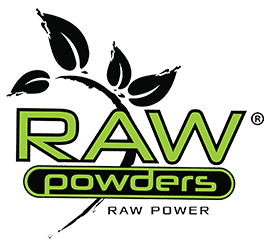DOES CORDYCEPS SUPERFOOD HAVE SIDE EFFECTS?


The medicinal mushroom, Cordyceps Sinensis, is an integral part of traditional Chinese medicine. It has anti-inflammatory, and antioxidant effects, and contains many vitamins and minerals. More about the possible uses in the blog: Benefits of Cordyceps Sinensis.
The superfood cordyceps is now valued worldwide. In Europe and Germany, buying Cordyceps online is the most popular, because pharmacies have rarely sold Cordyceps. Traditionally, the caterpillar mushroom is dried and prepared as tea.
The Cordyceps benefits are many, but can Cordyceps Sinensis cause side effects? Partly, yes. In general, however, taking Cordyceps is considered safe and has extremely few side effects. Cordyceps' side effects are very rare. However, we have compiled a list of what you should be aware of here.
The following side effects of Cordyceps are possible:
- Mild stomach pain
- Nausea
- Dry mouth
- Diarrhoea
- Metallic taste in the mouth (rare, only some products)
- Possibly slightly blood-thinning effect
How to Prevent Cordyceps Side Effects?
Mild Cordyceps side effects can occur, if at all, especially at the beginning of the intake. However, these will subside after a few hours or days.
However, if these are severe or persist: stop taking them and consult your doctor if necessary. It is also important to always keep the manufacturer's package inserts.
The medicinal mushroom Cordyceps is a dietary supplement that does not require a prescription. Nevertheless, one must follow the intake recommendations of the providers and the correct dosage of Cordyceps.
The daily maximum dose of 2000 to 3000 mg should not be exceeded. (Except for other prescriptions)
Furthermore, the vital mushroom is not taken every day, so breaks are required. If side effects occur, these intake cycles may need to be extended further.
More tips to avoid Cordyceps Sinensis side effects:
- at least 4 hours breaks between doses on the same day
- not on an empty stomach
- drink plenty of fluids
- do not take with alcohol or tranquilizers
- ingestion max. 2 x per week
For whom is Cordyceps not suitable?
1. Cordyceps for allergies
Since Cordyceps is a type of fungus, it is unsuitable for allergy sufferers. Especially if a fungal allergy is already known, you, unfortunately, have to do without Cordyceps.2. Cordyceps drug interactions
As with almost all drugs and substances, interactions are also possible when taking Cordyceps.
In the case of previous illnesses, it is therefore always necessary to consult the treating physicians, especially when taking medication such as:
- diabetes medication
- blood thinning agents
- antibiotics
3. Cordyceps in diabetes
Caution is advised with diabetes medication since taking Cordyceps can lead to hypoglycemia.
4. Cordyceps for blood clotting disorders
People who take anticoagulants or blood-thinning medication or who suffer from bleeding disorders should consult their doctor before taking the medicinal mushroom.
5. Cordyceps before upcoming operations and surgical procedures
To prevent excessive blood loss during surgery, Cordyceps should not be taken for at least 2-3 weeks before surgery.
6. Cordyceps during pregnancy and lactation
Studies on the intake and effects of Cordyceps during pregnancy and breastfeeding have not yet been sufficiently meaningful. For this reason, any Cordyceps products are not recommended for children, expectant or nursing mothers.
Textautor:
Kay Svegler
Communications, PR, American Studies, University of Leipzig
Journalist and freelance writer (e.g. Süddeutsche Zeitung, BILD, MDR etc.)
Former Senior PR Manager for Fischer Appelt, Sustainability and Diversity Manager for DKB




_front%20(1)-250x250.png)



_front%20(1)-250x250.png)

-(NN)_front%20(1)-min-250x250.png)

_front%20(1)-250x250.png)



_front%20(1)-min-250x250.png)
_front%20(1)%20(1)-250x250.png)
_front%20(1)%20(1)-250x250.png)






_front%20(1)-250x250.png)
